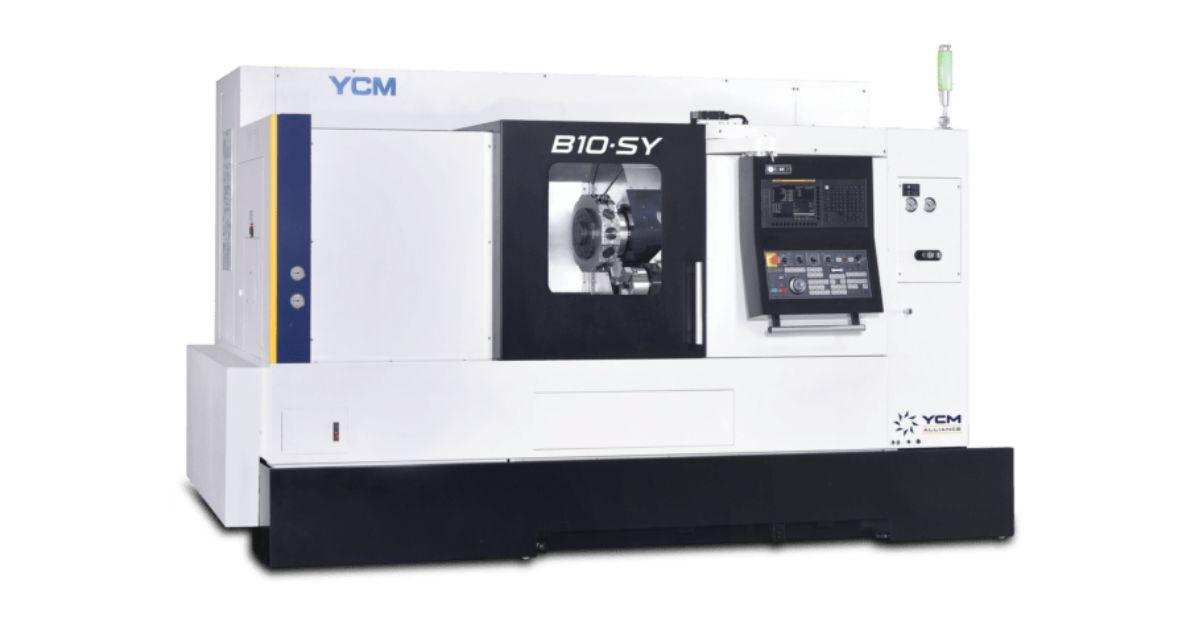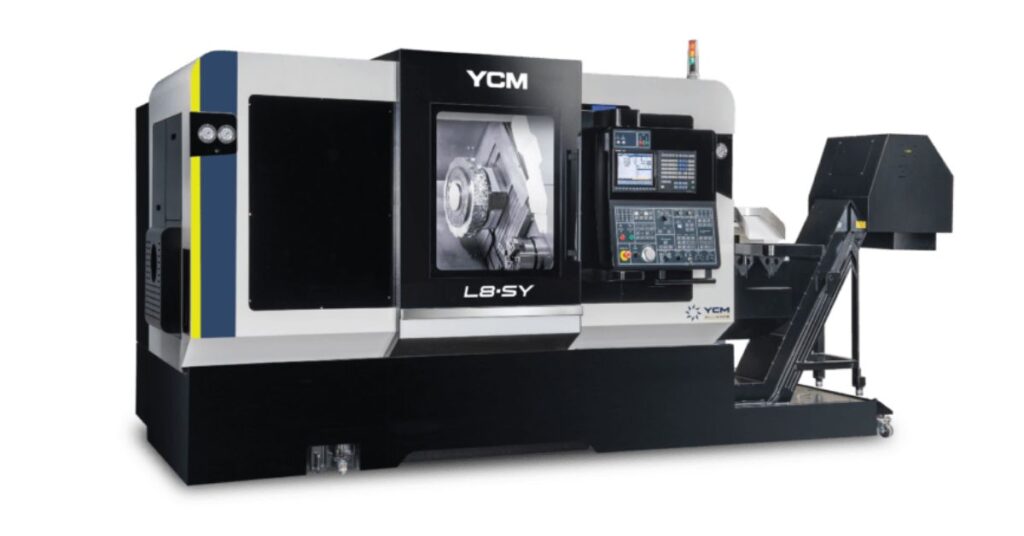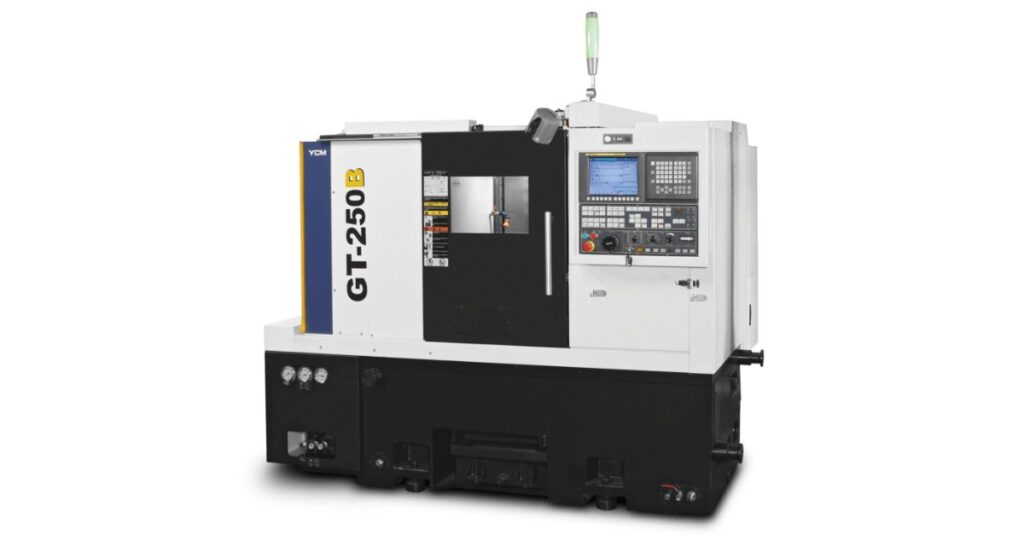Which Industries Use CNC Machines the Most?

Computer numerical control (CNC) machines anchor modern manufacturing with repeatable precision, speed, and scalability. From small-batch prototypes to full-rate production, CNC machining supports critical parts across regulated industries.
This post examines where investment in CNC technology concentrates most heavily and why those sectors depend on it for quality and throughput. Join us as we take a look at the industries that use CNC machines the most, along with the performance, material, and compliance drivers behind their reliance.
Aerospace Industry
Aerospace sets the bar for precision, documentation, and repeatability. Flight-critical components must meet micrometer-level accuracy, consistent surface finishes, and full traceability under AS9100 and related standards.
- Typical applications:
- Turbine blades, blisks, and impellers with complex aerofoils and thin-wall geometries
- Structural components, brackets, and ribs machined from aluminum-lithium and titanium
- Landing gear axles, actuators, and housings requiring high-strength alloys
CNC platforms in the aerospace sector address the industry’s rigorous demands. Not only must each machined part conform to precise design and safety standards, but manufacturers must also keep detailed records for every stage of production. This level of oversight ensures full traceability, which is essential for components intended for flight.
Aerospace machining environments regularly adopt high-speed spindles to optimize both roughing and finishing processes on tough, aerospace-grade alloys. Thermal stability and rigid construction allow the machines to maintain accuracy even during challenging, high-volume runs.
Furthermore, the move toward lighter, stronger materials like titanium and aluminum-lithium alloys highlights the growing role of CNC solutions that handle these metals without compromising on tool life or finish.
Automotive Industry
Automotive manufacturing relies on CNC machines for making high-volume, standardized parts and meeting an increasing demand for rapid retooling. Powertrain, chassis, and e-mobility systems all benefit from precise, repeatable machining.
- Core applications:
- Engine blocks, cylinder heads, crankshafts, and camshafts
- Transmission shafts, gear components, and differential housings
- EV components, including motor housings, battery trays, and inverter cooling plates
In the automotive world, speed and consistency are paramount. Production lines must keep pace with consumer demand, and every component must meet strict quality and dimensional standards to ensure safety and performance.
CNC machines play a vital role in producing parts not just for combustion engines but increasingly for electric vehicles (EVs), where new materials and designs require fast adaptation. In this industry, CNC turning centers are particularly valuable due to their ability to efficiently produce highly accurate cylindrical components, such as shafts, bushings, and fasteners, in large quantities. Smart monitoring solutions and real-time data collection help manufacturers quickly identify and correct issues, supporting a culture of continual improvement.
Automated tool changes and modular setups enable plants to switch between product lines or update models with minimal downtime, resulting in efficient, scalable workflows that protect profit margins.

Medical Industry
Regulatory rigor and patient safety define medical machining. Devices must meet strict biocompatibility, cleanliness, and documentation requirements under ISO 13485 and FDA guidance.
- Typical applications:
- Orthopedic and spinal implants from titanium and cobalt-chromium alloys
- Surgical instruments in 17-4 PH, 455 stainless, and hardened tool steels
- Dental abutments and prosthetic components with precise fit and polish
CNC machines in the medical field handle challenging materials while achieving extraordinarily tight tolerances. With increasing demand for minimally invasive surgery, the complexity and miniaturization of medical devices have risen, pushing CNC capabilities to new levels.
Five-axis machining is essential for producing intricate geometries and for accessing hard-to-reach features without manual repositioning. Micro-tooling enables consistent production of very small parts, such as screws and pins, with smooth surfaces and precision threading—critical for patient comfort and successful outcomes. Robust cleaning protocols and documentation further guarantee that every item meets or exceeds the high standards required for medical use.
Electronics Industry
Electronics blends subtractive and additive processes, with CNC machining delivering precision housings, thermal solutions, and board-level features that demand clean edges and repeatability.
- Applications:
- PCB drilling, routing, and depanelization requiring high spindle speeds and low runout
- Aluminum and magnesium enclosures with EMI shielding and tight cosmetic standards
- Heatsinks, connectors, and RF housings with tolerance-critical cavities and channels
The electronics sector thrives on innovation and miniaturization, driving continuous advancements in CNC technology. Machining centers for electronics often incorporate dust containment, vibration control, and thermal management to protect sensitive components and ensure immaculate finishes.
The ability to produce complex, tight-tolerance enclosures and intricate board features enables manufacturers to pack more capability into smaller spaces—a key advantage as devices shrink and standards rise. Additionally, the role of CNC in creating parts that support electromagnetic compatibility and heat management further contributes to the robust quality of consumer and industrial electronics.
Manufacturing Industry
General manufacturing spans industrial equipment, energy, consumer products, and contract machining. CNC platforms serve as the backbone for prototyping, fixtures, short-run jobs, and full-scale production.
- Role across workflows:
- Rapid prototyping to compress design cycles and validate manufacturability early
- Fast changeovers for flexible production, from one-offs to thousands in a run
Within general manufacturing, CNC machines empower companies of all sizes to innovate and adapt quickly. The versatility of modern CNC tools allows manufacturers to run a variety of jobs—ranging from complex prototypes that enable fast product development to automated lines for long production runs. By standardizing setups and using modular fixturing, manufacturers improve flexibility while lowering setup time, making it easier to accommodate changes in demand.
Automation cells and real-time data analytics streamline operations even further, helping to maximize uptime and reduce waste. Meanwhile, rigorous maintenance programs ensure the equipment delivers reliable performance over the long term.
Why These Industries Lead On CNC Adoption
Aerospace, automotive, medical, electronics, and broad-based manufacturing share several needs:
- Precision and repeatability on complex geometries and materials
- Documented compliance with industry standards and regulatory bodies
- Scalable throughput with predictable cycle times and quality yields
- Lifecycle value that comes from reliability, service, and upgrade paths
These demands align perfectly with the strengths of modern CNC equipment and the software ecosystem that surrounds it.

Precision That Moves Industries Forward
Aerospace, automotive, medical, electronics, and general manufacturing represent the industries that use CNC machines the most. Each sector depends on tight tolerances, robust materials, and consistent output delivered at scale. CNC machining has become a strategic capability, not just a production method, enabling companies to compress lead times, meet compliance, and protect margins.
YCM Alliance machine solutions help manufacturers realize that value over the long term. Rigid structures, thermal stability, and high-performance spindles support both roughing and finishing with exceptional accuracy. Real-time monitoring, automation readiness, and proven reliability reduce downtime and improve overall equipment effectiveness. Global 24/7 support and comprehensive training accelerate integration and keep production running.
Organizations seeking durable performance and strong ROI gain a trusted partner with the YCM Alliance. To learn how YCM Alliance’s advanced CNC turning centers can elevate your production capabilities and deliver lasting value, contact us today and connect with our team of experts.